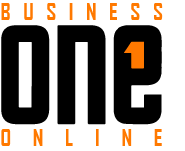Online courses have become one of the most convenient and flexible ways to enhance knowledge, learn new skills, and boost career prospects.
Whether you want to upskill in your current profession, switch careers, or stay competitive in the job market, selecting the right online course is essential for effective learning and career growth.
With thousands of online courses available across multiple platforms, choosing the right one can be overwhelming.
The challenge is not just finding a course but ensuring it aligns with your career aspirations, offers value, and delivers quality content.
Selecting the wrong course can waste your time, effort, and money without yielding significant benefits.
To make an informed decision, it is crucial to assess factors such as course content, accreditation, instructor expertise, certification recognition, and practical applicability.
Moreover, online learning is a powerful tool that allows individuals to learn at their own pace, access global expertise, and obtain certifications that can strengthen their resumes.
However, not all courses are created equal, and a lack of proper research before enrolling can lead to disappointment.
This guide will walk you through a comprehensive step-by-step process to help you choose the best online course suited to your career development.
By following these strategies, you can maximize your learning experience, gain relevant skills, and achieve your professional goals efficiently.
Define Your Career Goals
Before enrolling in any online course, you must first understand your career objectives.
Having clear career goals ensures that the course you choose aligns with your aspirations and provides the necessary skills to advance in your industry.
Understand Your Industry Requirements
Different industries have different skill requirements. Research your field and determine the essential skills needed for career progression.
For example, if you are in the IT sector, learning programming languages like Python, Java, or cloud computing may be beneficial.
If you are in digital marketing, courses on SEO, social media marketing, and PPC advertising might be useful.
Identify Skill Gaps
Analyze your current skill set and identify any gaps that may be holding you back from career growth.
Make a list of skills that you need to improve or acquire. A well-defined approach will help you focus on courses that fill these gaps.
Determine Short-Term and Long-Term Goals
Your career goals can be categorized into short-term and long-term objectives.
Short-term goals include gaining specific skills for an immediate job promotion, while long-term goals may involve obtaining a certification or degree to enhance career prospects in the long run.
Choose a course that aligns with both your immediate and future needs.
Assess Course Content

The quality and relevance of the course content play a crucial role in its effectiveness.
Ensuring the course covers the necessary topics and provides comprehensive knowledge is vital for a worthwhile learning experience.
Check the Syllabus and Learning Outcomes
Most online courses provide a detailed syllabus that outlines the topics covered.
Carefully review the course structure and learning objectives to see if they align with your career goals.
Look for Practical Learning Approaches
Courses that incorporate hands-on projects, case studies, or real-world applications are more beneficial than those that focus solely on theory.
Practical assignments help you apply the learned concepts in real-life scenarios.
Verify Course Updates
Technology and industry trends evolve rapidly.
Ensure that the course content is regularly updated to reflect the latest developments in your field.
Outdated courses may not provide value in today’s competitive job market.
Check the Course Provider
Choosing a reputable course provider is essential to ensure quality education and credibility.
Various online platforms offer courses, but not all are equally recognized in the job market.
Reputable Platforms for Online Courses
Some well-known platforms for online learning include:
- Coursera – Offers university-level courses and professional certificates.
- Udemy – Provides affordable courses on a wide range of topics.
- edX – Features courses from top universities and institutions.
- LinkedIn Learning – Ideal for professional development and career-oriented courses.
- Skillshare – Focuses on creative and business skills.
University and Institution Affiliation
Courses offered by well-known universities or institutions often carry more weight in the job market.
If certification is an important factor for you, consider courses affiliated with accredited universities or organizations.
Accreditation and Recognition
For career advancement, choose courses that offer recognized certifications. Employers often prefer certifications from accredited institutions, as they indicate a high standard of education.
Read Reviews and Ratings
Check Learner Feedback
Reviews and ratings provide insights into the quality of the course.
Look for feedback from previous learners regarding the course structure, instructor expertise, and practical application.
Seek Honest Opinions
Some reviews may be biased or promotional. Refer to third-party websites or discussion forums where users provide genuine feedback about their learning experiences.
Evaluate Completion Rates
A course with a high completion rate often indicates that learners found it engaging and valuable. Conversely, low completion rates may suggest a poorly designed course or a lack of relevance.
ALSO READ: How to Start a Small Business with Limited Capital
Evaluate Course Structure and Duration

Flexible Learning Options
Online courses offer various formats, including self-paced and instructor-led options.
Choose a format that suits your learning style and schedule.
Time Commitment
Consider the total duration of the course and whether it fits into your daily routine.
Some courses require a few hours per week, while others may demand a more intensive time commitment.
Compare Cost and Value
Budget Considerations
Online courses range from free to premium pricing. Assess the cost and ensure it provides value for money.
Scholarships and Financial Aid
Some platforms offer financial aid, scholarships, or discounts for learners. If cost is a barrier, explore these options before making a decision.
Look for Certification and Recognition
Employer Recognition
Check if the certification is recognized by employers in your industry. Some courses are valued more than others due to industry partnerships.
LinkedIn and Resume Integration
Adding certifications to your LinkedIn profile or resume enhances your credibility and showcases your expertise to potential employers.
Check for Practical Application
Hands-On Projects
Practical courses with projects help reinforce learning. Ensure the course includes assignments or real-world scenarios relevant to your field.
Internship and Job Assistance
Some courses offer internships, mentorship, or job placement assistance. This can be an added advantage if you are looking for career advancement or transition.
Assess Instructor Expertise
Verify Instructor Credentials
Research the instructor’s background, qualifications, and industry experience. An experienced instructor can provide valuable insights beyond textbook knowledge.
Watch Preview Lessons
Most courses offer a free preview or introductory session. Watching a preview helps you gauge the instructor’s teaching style and course quality.
Look for Community and Support
Discussion Forums and Peer Interaction
Courses with active discussion forums allow students to engage, ask questions, and share experiences.
Mentor Support
Some platforms provide mentorship or live sessions with instructors, which can be beneficial for resolving doubts and gaining expert guidance.
ALSO READ: How to Build a Successful Digital Marketing Strategy
Conclusion
Choosing the right online course for career development requires careful planning and research.
By setting clear career goals, evaluating course content, and selecting reputable platforms, you can ensure that your learning journey is effective and rewarding.
Consider factors like course structure, certification, cost, and instructor expertise before making a final decision.
With the right approach, online education can open new doors of opportunity and help you stay ahead in an ever-evolving job market.
Take the time to choose wisely and invest in your future success.







